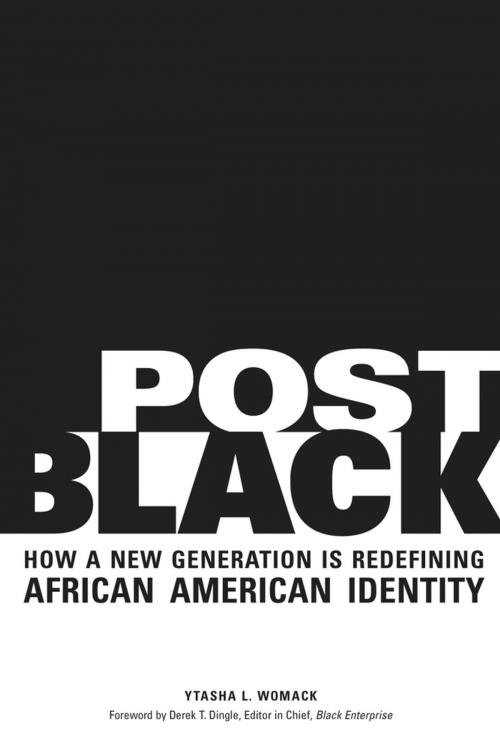Post Black
How a New Generation Is Redefining African American Identity
Nonfiction, Social & Cultural Studies, Social Science, Cultural Studies, African-American Studies| Author: | Ytasha L. Womack | ISBN: | 9781569765418 |
| Publisher: | Chicago Review Press | Publication: | January 1, 2010 |
| Imprint: | Chicago Review Press | Language: | English |
| Author: | Ytasha L. Womack |
| ISBN: | 9781569765418 |
| Publisher: | Chicago Review Press |
| Publication: | January 1, 2010 |
| Imprint: | Chicago Review Press |
| Language: | English |
Highlighting certain socioeconomic and cultural trends, this exploration discloses the new dynamics shaping contemporary lives of African Americans. Using information from conversations with mavericks within black communities-such as entrepreneurs, artists, scholars, and activists as well as members of both the working and upper classes-this powerful examination gives voice to what the author has deemed post black” approaches to business, lifestyles, and religion that are nowhere else reflected as part of black life. The argument states that this new, complex black identity is strikingly different than the images handed down from previous generations and offers new examples of behavior, such as those shown by President Obama, gays and lesbians, young professionals, and black Buddhists. Contending that this new generation feels as unwelcome in traditional churches as in hip-hop clubs, this dynamic provocation dispels myths about current, popular black identity.
Highlighting certain socioeconomic and cultural trends, this exploration discloses the new dynamics shaping contemporary lives of African Americans. Using information from conversations with mavericks within black communities-such as entrepreneurs, artists, scholars, and activists as well as members of both the working and upper classes-this powerful examination gives voice to what the author has deemed post black” approaches to business, lifestyles, and religion that are nowhere else reflected as part of black life. The argument states that this new, complex black identity is strikingly different than the images handed down from previous generations and offers new examples of behavior, such as those shown by President Obama, gays and lesbians, young professionals, and black Buddhists. Contending that this new generation feels as unwelcome in traditional churches as in hip-hop clubs, this dynamic provocation dispels myths about current, popular black identity.















